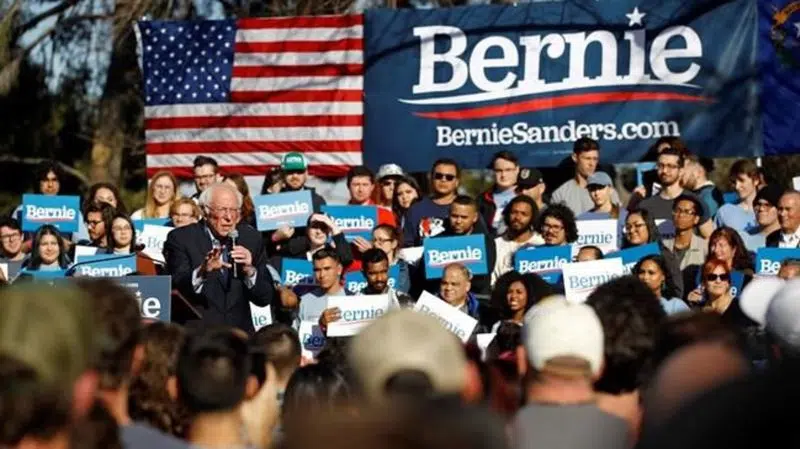
Sanders hopes early strength will prove he can beat Trump
LAS VEGAS — Terry Reece has long been skeptical that voters would back Bernie Sanders, a 78-year-old self-described democratic socialist who is just months removed from a heart attack. Then the Vermont senator essentially tied for first place in the Democratic Party’s Iowa caucuses and won its New Hampshire primary.
That forced Reece to rethink his assumptions about who can win the nomination. After months of leaning toward former Vice-President Joe Biden, Reece filled out a preference card for Sanders during early voting this week in the Nevada caucuses.
“I think that people are kind of wanting to turn the pages and get more radical, or switch from the status quo,” said Reece, a 62-year-old African American who owns a small media company in Las Vegas.
That’s exactly the sentiment Sanders is counting on to carry him to victory in the battle to take on President Donald Trump. Since the early days of Sanders’ second presidential campaign, he and his supporters have sought to allay concerns that he’s a fringe candidate whose call for political revolution would doom the party to another humiliating defeat. The strong showing in Iowa and New Hampshire gives him fresh evidence to make that case.
